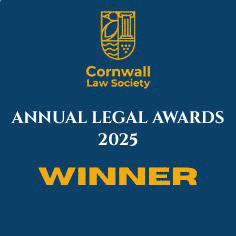- by
Diddly Squat? IHT, Trusts & Clarkson’s Farm
“People like me will simply put it in a Trust and, as long as I live for seven years, that’s fine.” Jeremy Clarkson
So said Jeremy Clarkson when clashing with the BBC’s Victoria Derbyshire in typically flamboyant style when protesting with farmers about Labour’s changes to IHT relief for farmers. A substantial increase of tax on farmers and businesses (it hits farmers twice, because they own farms and run businesses!) has been a hot topic every since, with widespread protests across the country.
Jason Crocker, Solicitor at Penderlaw goes behind the headlines and explores how a Trust can help you reduce Inheritance Tax (IHT), whether you are a farmer or not.
So, is what Clarkson said essentially true?
Jeremy Clarkson’s statement does have some truth to it, but as with many legal matters, the devil is in the detail. Trusts can be a way to reduce inheritance tax in some circumstances, but there are caveats to this and there are restrictions in terms of how they work. The tax consequences of Trusts is particularly complicated and a good accountant is required to assist with any planning. However, Trusts even where some tax will be paid as result of setting up the Trust, can allow for more certainty as to outcome and continuity in the event of members of the family dying.
Issues with Clarkson’s IHT plans
Amongst other issues, one major stumbling block to Clarkson’s plans regarding a Trust is that generally speaking, to be effective in reducing IHT liability, he would not be able to continue to benefit from his Trust. Putting assets into a Trust also triggers various charges such as entry and exit charges, anniversary charges, as well as Capital Gains Tax. If he did continue to benefit from his farm and generate income from it, as well as the IHT benefits from the trust being significantly reduced, he would also find that the Trust would also be liable for income tax at between 39-45%.
What is a Trust?
Most of us have heard of Trusts but may not have a clear understanding of exactly what they are used for, or when it might be beneficial to consider setting one up. They are often thought of as the preserve of the super wealthy, but this is actually not true. In fact, although Trusts are sometimes viewed with suspicion, many of us already have one within our existing Will (often referred to as a Flexible Will), or via property we own. All land and dwellings owned as freehold by more than one person, is held in Trust.
Protection against changing circumstances
Simply put, a Trust is a legal vehicle to hold assets. Trusts were devised centuries ago to provide a means of legal owners (the Trustees), holding assets and income for a group of beneficiaries, who can as the name suggests, benefit from the capital and income of the Trust. They can also be a way to maintain control of your assets and guard against changing circumstances. They also have inherent advantages over Limited Companies, particularly greater flexible in the way income is distributed. Although in recent years they must be registered, there are still much less reporting and accounting obligations.
When your assets are put into a Trust, they are no longer owned by you but are owned and managed by your chosen Trustees. You as an individual are therefore not taxed on the assets held in your Trust.
Another advantage is that when you die, your Trustees have access to the trust fund and property without needing to get a Grant of Probate to administer all your assets. This can be a useful means of managing the situation. Whereas the assets that simply fall into an Estate, generally require a Grant of Probate to access them.
There are a number of different types of Trust, and they are all taxed differently, so seeking professional advice to work out which would be best for you is crucial. See our jargon buster on the website for the different types of Trust.
What is the 7-year rule?
Jeremy also mentioned that if he lived for 7 years after putting his assets into a Trust, all would be well. Many people have heard of the 7 year rule but again, there are caveats to it. The Gov.uk website states that “No tax is due on any gifts you give if you live for 7 years after giving them – unless the gift is part of a Trust.” This is known as the 7-year rule. However, the Gov.uk website also states that “The rule does not apply to gifts with reservation.” A gift with reservation is a gift where a person gives something away but continues to benefit from it. E.g. giving a house to your children but continuing to live in it. In Clarkson’s case as mentioned above, he could put the farm into a Trust but to derive IHT advantages to this, he would not be able to continue to benefit from it, which may defeat the purpose.
Informed, professional advice
In conclusion, there are ways to minimize IHT exposure, but there is a great deal more detail to it than Clarkson’s initial response would suggest. If you would like to discuss your own situation with our friendly and experienced team, we would be pleased to hear from you.
Get in touch
You can reach us by emailing info@penderlaw.co.uk or call us on 01872 241408







